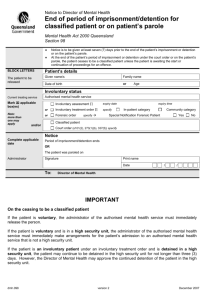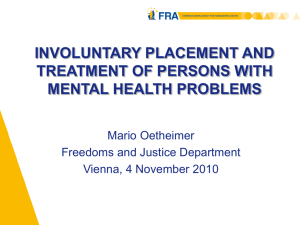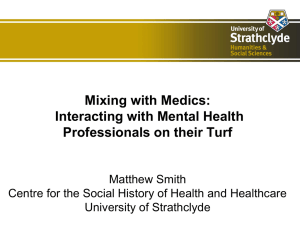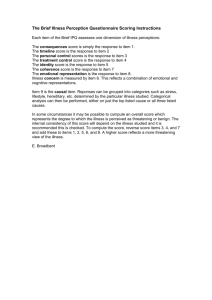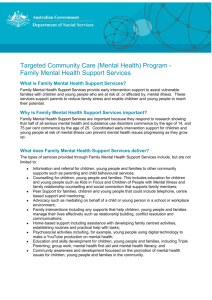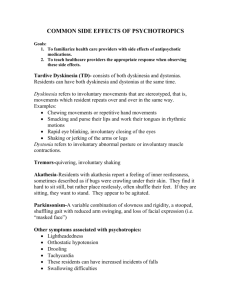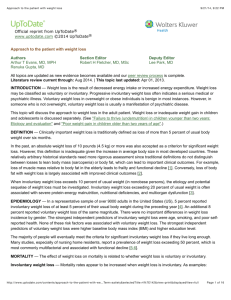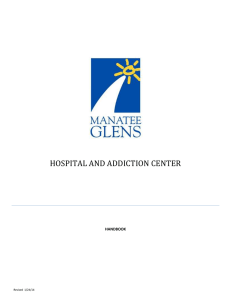World Network of Users and Survivors of Psychiatry
advertisement
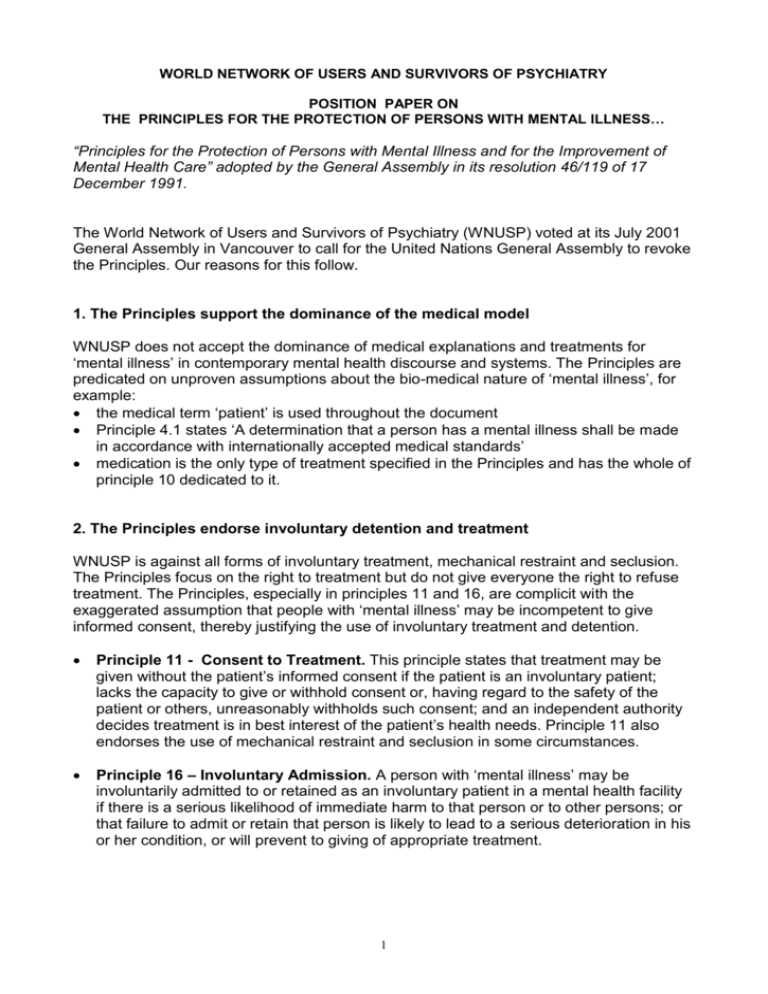
WORLD NETWORK OF USERS AND SURVIVORS OF PSYCHIATRY POSITION PAPER ON THE PRINCIPLES FOR THE PROTECTION OF PERSONS WITH MENTAL ILLNESS… “Principles for the Protection of Persons with Mental Illness and for the Improvement of Mental Health Care” adopted by the General Assembly in its resolution 46/119 of 17 December 1991. The World Network of Users and Survivors of Psychiatry (WNUSP) voted at its July 2001 General Assembly in Vancouver to call for the United Nations General Assembly to revoke the Principles. Our reasons for this follow. 1. The Principles support the dominance of the medical model WNUSP does not accept the dominance of medical explanations and treatments for ‘mental illness’ in contemporary mental health discourse and systems. The Principles are predicated on unproven assumptions about the bio-medical nature of ‘mental illness’, for example: the medical term ‘patient’ is used throughout the document Principle 4.1 states ‘A determination that a person has a mental illness shall be made in accordance with internationally accepted medical standards’ medication is the only type of treatment specified in the Principles and has the whole of principle 10 dedicated to it. 2. The Principles endorse involuntary detention and treatment WNUSP is against all forms of involuntary treatment, mechanical restraint and seclusion. The Principles focus on the right to treatment but do not give everyone the right to refuse treatment. The Principles, especially in principles 11 and 16, are complicit with the exaggerated assumption that people with ‘mental illness’ may be incompetent to give informed consent, thereby justifying the use of involuntary treatment and detention. Principle 11 - Consent to Treatment. This principle states that treatment may be given without the patient’s informed consent if the patient is an involuntary patient; lacks the capacity to give or withhold consent or, having regard to the safety of the patient or others, unreasonably withholds such consent; and an independent authority decides treatment is in best interest of the patient’s health needs. Principle 11 also endorses the use of mechanical restraint and seclusion in some circumstances. Principle 16 – Involuntary Admission. A person with ‘mental illness’ may be involuntarily admitted to or retained as an involuntary patient in a mental health facility if there is a serious likelihood of immediate harm to that person or to other persons; or that failure to admit or retain that person is likely to lead to a serious deterioration in his or her condition, or will prevent to giving of appropriate treatment. 1 3. The Principles contravene the Universal Declaration of Human Rights WNUSP believes that Principles 11 and 16 contravene some of the articles in the Universal Declaration of Human Rights: Article 5 states that no one shall be subjected to…cruel, inhuman or degrading treatment or punishment. WNUSP regards all forms of involuntary treatment, physical restraint and seclusion as cruel, inhuman and degrading. Article 9 states that no one shall be subjected to arbitrary…detention. WNUSP asserts this includes detention against one’s will in psychiatric facilities. Article 13 states that everyone has the right to freedom of movement. WNUSP believes this is denied to people who are detained in psychiatric facilities. Article 18 states that everyone has the right to freedom of thought. WNUSP considers that involuntary treatment of so called ‘delusions’ and ‘hallucinations’ contravenes this right. Article 19 states that everyone has the right to freedom of opinion and expression. WNUSP considers that involuntary treatment of behaviour that is seen to be a result of ‘mental illness’ contravenes this right. 4. The Principles are not strong enough on citizen rights WNUSP believes that users and survivors of psychiatry should have exactly the same right to live and work in their communities as other citizens. The Principles dilute this right when, for example, they state in principle 7 that ‘people with mental illness shall have the right to live and work, as far as possible, in the community’. 5. The Principles were developed with little consultation with users/survivors WNUSP understands that the Principles were developed without significant involvement by users and survivors of psychiatry. This seriously reduces the credibility of the Principles. 2

